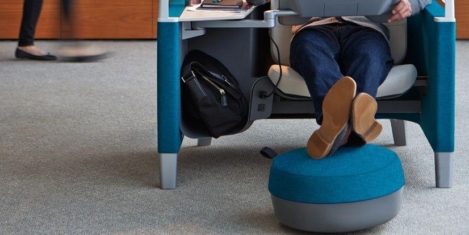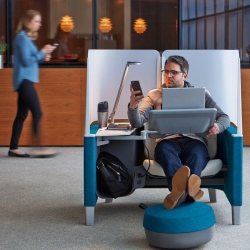February 27, 2020
New initiative aims to help people reconnect with the outside world
 Following the recent report outlining the mental health benefits of spending time outdoors, The National Trust has published its own research on the wellbeing impacts of the natural world in partnership with the University of Derby, which shows those with an active ‘engagement’ with nature enjoy significant health benefits and are more likely to address environmental issues. The research has prompted a new initiative focussed on a series of activities that will help people engage more with their natural surroundings. This includes a new weekly guide to every day nature connection and a public awareness campaign, including billboards by roads and in railway stations, on the first day of spring. (more…)
Following the recent report outlining the mental health benefits of spending time outdoors, The National Trust has published its own research on the wellbeing impacts of the natural world in partnership with the University of Derby, which shows those with an active ‘engagement’ with nature enjoy significant health benefits and are more likely to address environmental issues. The research has prompted a new initiative focussed on a series of activities that will help people engage more with their natural surroundings. This includes a new weekly guide to every day nature connection and a public awareness campaign, including billboards by roads and in railway stations, on the first day of spring. (more…)






 Nearly six in 10 British workers (58 percent) worry about disappointing their manager, with more than a third (36 percent) saying they rely on praise from their boss to help boost their confidence at work, a survey has claimed.
Nearly six in 10 British workers (58 percent) worry about disappointing their manager, with more than a third (36 percent) saying they rely on praise from their boss to help boost their confidence at work, a survey has claimed. 
 Freelancers value the freedom and flexibility of being their own boss but their happiness is most closely correlated with how much money they earn, a survey of 7,000 freelancers has claimed. According to the
Freelancers value the freedom and flexibility of being their own boss but their happiness is most closely correlated with how much money they earn, a survey of 7,000 freelancers has claimed. According to the 
 Getting on well with colleagues gives workers greater job satisfaction than having a good salary, new research has claimed. “
Getting on well with colleagues gives workers greater job satisfaction than having a good salary, new research has claimed. “





















February 19, 2020
Look beyond the perks and reviews to get a clear view of an employer
by Delaney Kline • Comment